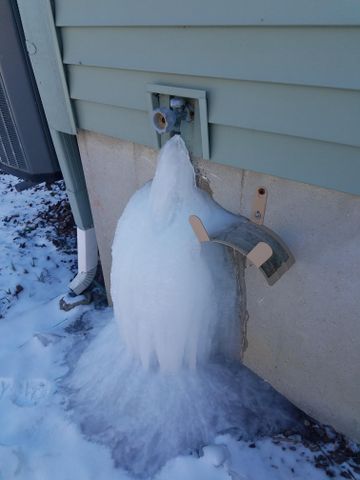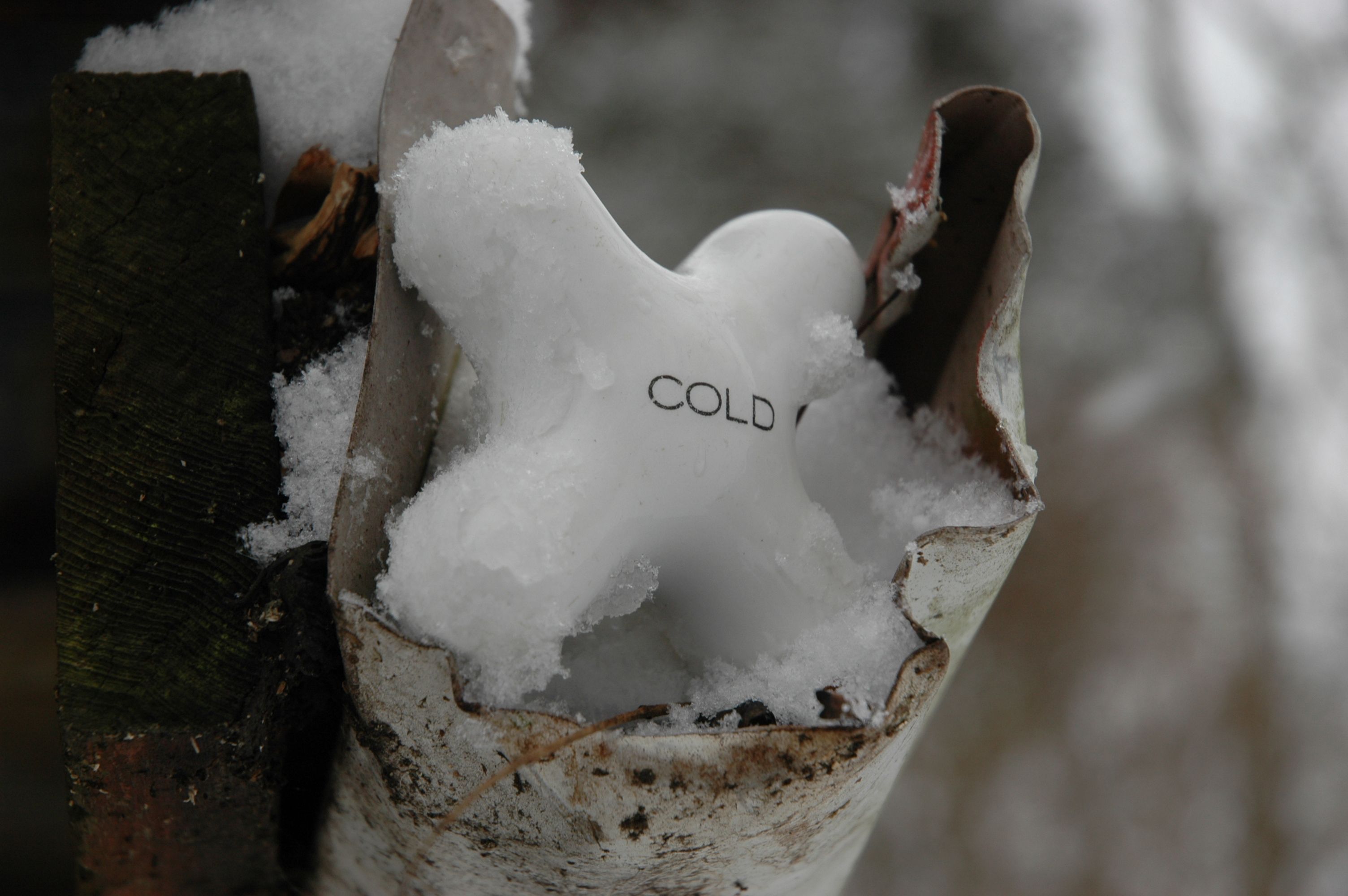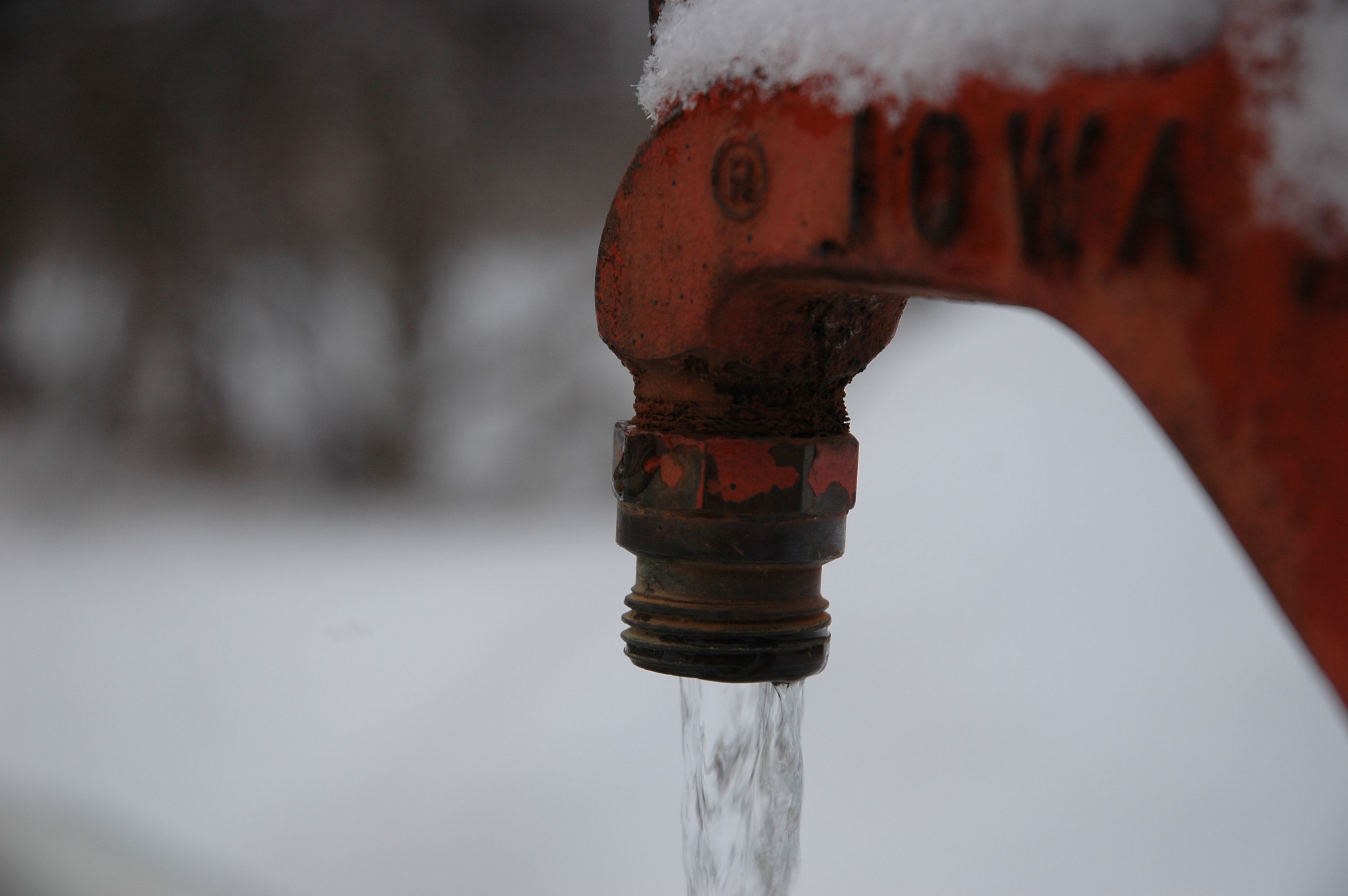
1. Before there is an emergency- locate and know how to operate your main whole house shut off valve. Inform everyone who lives in the house where this valve is and how to use it. Being able to shut off the water quickly in an unfortunate emergency is the best way to minimize damage to property.
2. Outside Hose Faucets- When freezing weather is imminent- Disconnect all garden hoses from all outside hose faucets (hoses can trap water inside of “anti-freeze” faucets which can and will freeze and may not exhibit the break until spring). Check faucets for leaks or drips- even “anti-freeze” faucets that leak and drip – can and will freeze causing a broken pipe.
Be certain to shut off any valves leading to outside hose faucets – especially NON anti-freeze. Once the valve is shut, drain the water by opening the faucet, and by opening the the bleeder on the valve itself. Check to make sure the inside valve is holding and that the faucet is not dripping. Repair any leaks before the cold weather.
3. Outside walls, crawl spaces, soffits, garages, unheated basements- Are all areas that should be avoided for placement of waterlines. However waterlines that are located in these areas are most susceptible to freeze first. Make sure garage doors, basement doors or crawl space openings are kept securely closed during cold weather.
In areas where waterlines are known to exist in possible freezing conditions – open cabinet doors, interior crawl space openings and wall or floor spaces to allow warm air from inside the house to circulate more freely. Turn off and isolate waterlines in areas that are known to freeze- drain the water from the lines in these areas. If valves and drains do not exist for this – consider making the investment to install them.
4. Let faucets drip- **CAUTION** This should only be done after checking to make sure that the drain is open and free flowing AND that someone is at home to continually monitor the water.**
Allowing a faucet to drip or run in a very small stream will produce movement within the pipes which will not freeze as quickly as a static system. Caution – running water can and will still freeze – drains receiving the discharge from such faucets also can and will freeze. If you are going to let faucets drip – Continual monitoring is essential.
5. Unoccupied Property- Continual monitoring during freezing weather to confirm that the heat is on and water flowing is essential in any property that is not continuously occupied.
If no one is available to monitor the property the best action is to winterize the plumbing system by shutting the water off at the street and draining all pipes and fixtures. Special fluid should be placed in all fixtures with traps. Water heaters should have power turned off and be drained. Washing machine, dishwasher, and ice maker supplies should all be disconnected and drained. A professional plumbing contractor should be consulted for proper winterization.
**Any homes with steam or hot water heat cannot be winterized in this manner**
6. Power Outages- If the power and the heat go out – and the property is expected to be exposed to freezing temperatures:
The main valve should be operated and the system drained until heat and power are restored.
If conditions are going to be prolonged the system should be winterized as previously described.
Anyone leaving their home during the winter months and not having the property continually monitored – should assume the power will go off and perform winterizing procedures.
About the Business
Have a question? Ask the experts!
Send your question

